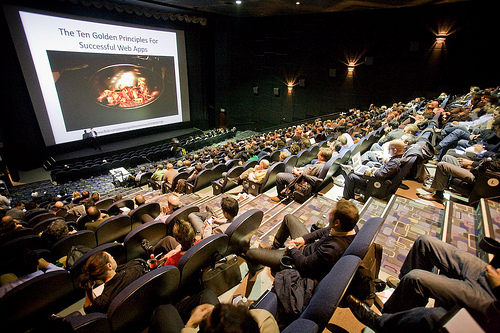
When Jevon and Jonas and I first met back in 2006 it was because we shared an interest in early stage, emerging technology companies. We were excited to have found other people in Toronto that were interested in the same things. Startups. Technology. Emerging business models. Funding. It was great. It was early days, it was easy to connect with others to figure out who was interested. And to move things forward. We wrote about the stuff we found interesting, hosted events that we wanted to attend (anyone remember StartupEmpire), and have tried to be tireless promoters of high potential growth technology startups in Canada. We’ve tried to connect engineers and designers. But as the community has grown we’ve done a very good job outside of repeated participation at events in connecting potential cofounders.
How do you meet a cofounder?
This is where Founder Dating comes in.
FounderDating brings together super talented entrepreneurs with different backgrounds and skill sets to start innovative new companies. All too often you know people with similar backgrounds and skills sets to your own. We help you find co-founders with complimentary skill sets.
The thing that Founder Dating brings that are crucial:
- High Quality – everyone is screened for quality and readiness. Applications and members’ identities are confidential (many have jobs still) but a few of the folks who are part of the network are founders or early employees from: Stackmob, Snapfish, Zynga, Gilt and Loggly, just to name a few.
- Balanced – member base is 50% engineers/50% non-engineers
What Founder Dating is Not
- They are not “speed dating for cofounders” – they don’t do speed dating, never have, never will.
- You do NOT need an idea to apply. Just need to be ready to start something or at least work on a meaningful side-project (20ish hrs/week).
- This is NOT only for first-time entrepreneurs – a huge % of our members are repeat entrepreneurs
- FounderDating is NOT a meetup/event – per the above, we’re an online network and as first introduction to your round and the community you’re invited to an initial event but the power is in the network you become a part of.
We need to unlock Founder Dating for Toronto. Get on it!


